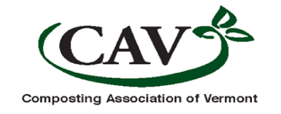Recording of Compost microscopy 101: matching biology to soil & crop needs
/In this recorded webinar from the Composting Association of Vermont's "Compost Tea Talk" lunch-and-learn series, we dive into the fascinating world of microscopy and its role in understanding compost and soil health. Led by John Culpepper, this session examines microscope images of compost and healthy soil, interpreting what different microbial populations reveal about soil conditions and compost quality. Discover how bacterial and fungal dominance influences plant health and learn how to optimize compost applications for various cropping systems to support long-term soil sustainability.
0:00 Introduction (Natasha Duarte, CAV)
2:35 Introduction to Compost for Good (John Culpepper, Compost for Good)
4:14 Compost microscopy 101: matching biology to soil & crop needs (John Culpepper, Compost for Good)
33:45 Q&A and discussion
Key Takeaways:
✅ How to interpret microbial diversity in compost and soil samples
✅ Understanding bacterial vs. fungal-dominant compost and its best uses
✅ Strategies for aligning compost application with your soil health goals
✅ How biologically robust compost can help reduce costs by choosing the right kind of compost for your fields, cropping systems, lawns, etc.
About the presenter: John Culpepper co-founded Compost for Good to help communities around the world to upcycle all appropriate organic materials to: reduce greenhouse gas emissions; keep resources in local communities; create business opportunities; help solve water quality issues; and lower the cost of food and fiber production. John has worked in education, farming, facilities management, and research. John is a certified microscopist through the Soil Food Web School, and he is currently working on his consultant certification through the same program.
Funded by a USDA Rural Utility Services Solid Waste Management Grant, the purpose of this project is to reduce solid waste, avoid water pollution, and increase soil health by providing technical support and training for community-oriented food scrap composting and manure management on farms in rural and small communities in Vermont, New Hampshire and New York. While developed and extended to farmers in these states, these Compost Tea Talks are open to all and are applicable to rural small-scale farming communities. Learn more at OnFarmComposting.org



